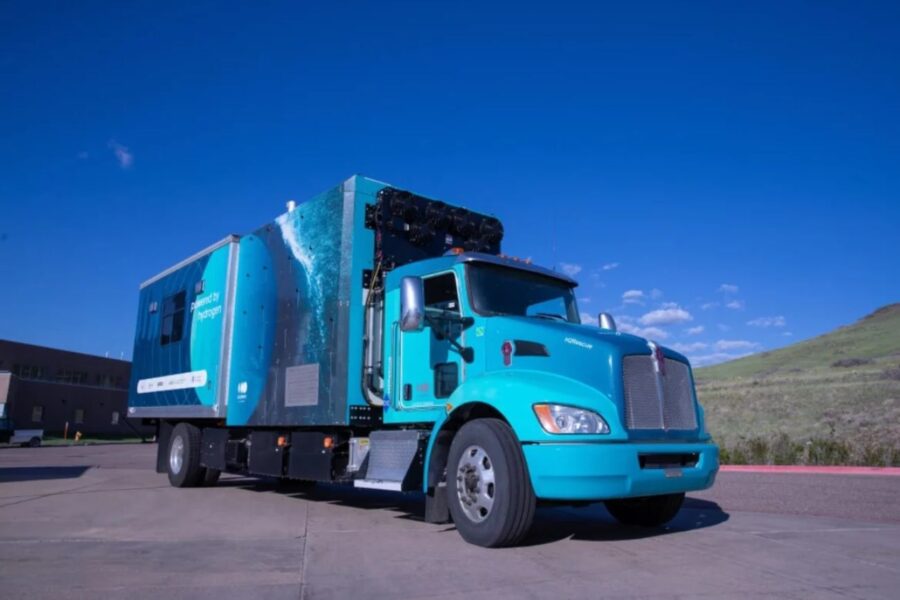Michigan is gearing up to become a leader in hydrogen energy, with ambitious plans to build infrastructure that could position the state as a key hub for clean energy solutions in the Midwest. The Midwest Alliance for Clean Hydrogen (MachH2) has received a $22 million grant from the U.S. Department of Energy to plan a series of hydrogen projects, including three significant initiatives in Michigan.
The Michigan Infrastructure Office is backing these efforts, which include expanding the Flint Mass Transportation Authority’s fleet of hydrogen fuel buses, constructing a hydrogen production facility in Ypsilanti, and developing a hydrogen truck stop in Detroit. The initiatives aim to address challenges in electrifying heavy-duty trucks, which face limitations with current battery technology.
Neil Banwart, chief integration officer for MachH2, emphasized Michigan’s unique position. “We’d like to work to help set up the infrastructure to make the conversion to fuel cell vehicles,” Banwart said. The state’s heavy truck traffic makes it an ideal candidate for hydrogen fuel infrastructure, he added.
The proposed hydrogen truck stop in Detroit would serve trucks crossing the border into Canada, while production facilities in Flint and Ypsilanti would supply fuel for hydrogen-powered heavy-duty vehicles. The Ypsilanti facility aims to produce “green hydrogen,” using renewable energy sources like solar power to minimize greenhouse gas emissions.
Hydrogen fuel offers a promising alternative for long-haul trucking, where battery-powered vehicles struggle due to size, weight, and charging limitations. Michigan’s strategic location and robust transportation network make it a focal point for developing this technology.
While hydrogen fuel is marketed as a clean energy solution, its environmental impact depends on the production method. The Department of Energy’s grant program mandates that projects meet stringent greenhouse gas emission standards. The proposed Ypsilanti facility’s focus on green hydrogen aligns with these requirements, utilizing renewable energy to produce hydrogen.
However, building a hydrogen-powered future will require significant investment in fueling stations and production facilities. Currently, there are few large-scale hydrogen production facilities in the Midwest, and none are located in Michigan. Banwart highlighted the importance of local production to reduce the costs and inefficiencies of transporting hydrogen over long distances.
The clean hydrogen initiative is supported by a coalition of stakeholders, including university researchers, government agencies, and major corporations like Exxon Mobil and Air Liquide. The $22 million grant will fund the planning phase, which will extend into 2026. Over time, the alliance anticipates up to $1 billion in federal cost-sharing to bring these projects to fruition.
Michigan’s efforts are part of a broader regional strategy, with MachH2 planning nine hydrogen projects across four states: Michigan, Indiana, Illinois, and Iowa. These initiatives aim to position the Midwest as a leader in clean energy technology.
By investing in hydrogen infrastructure, Michigan aims to reduce reliance on fossil fuels, support the trucking industry’s transition to sustainable alternatives, and create economic opportunities. The projects in Flint, Ypsilanti, and Detroit reflect the state’s commitment to innovation and environmental stewardship.
With hydrogen fuel poised to play a pivotal role in the future of transportation, Michigan’s initiatives could serve as a model for other states seeking to embrace clean energy. As the planning phase progresses, the state will be closely watched as it works to turn these bold ambitions into reality.

